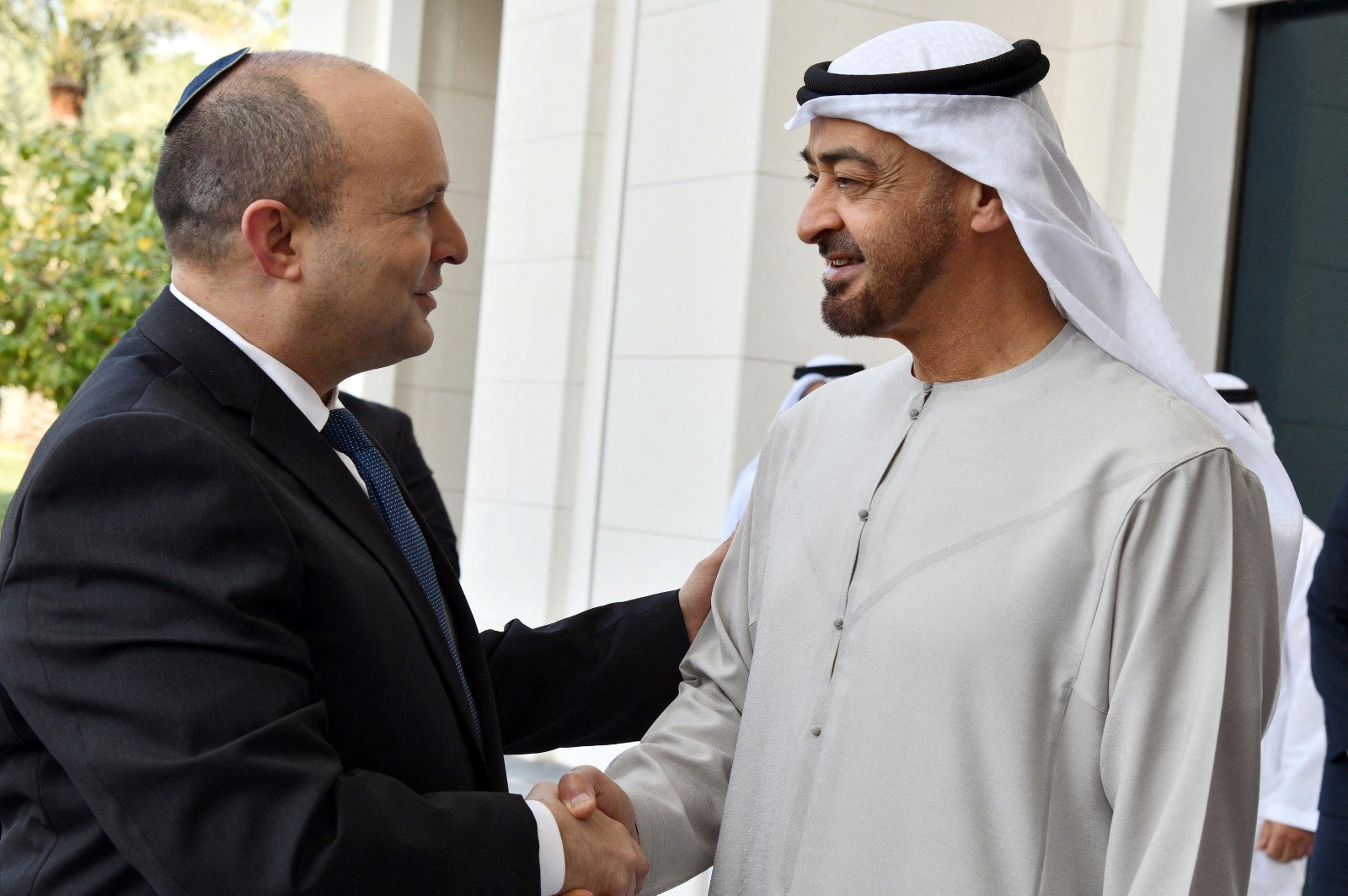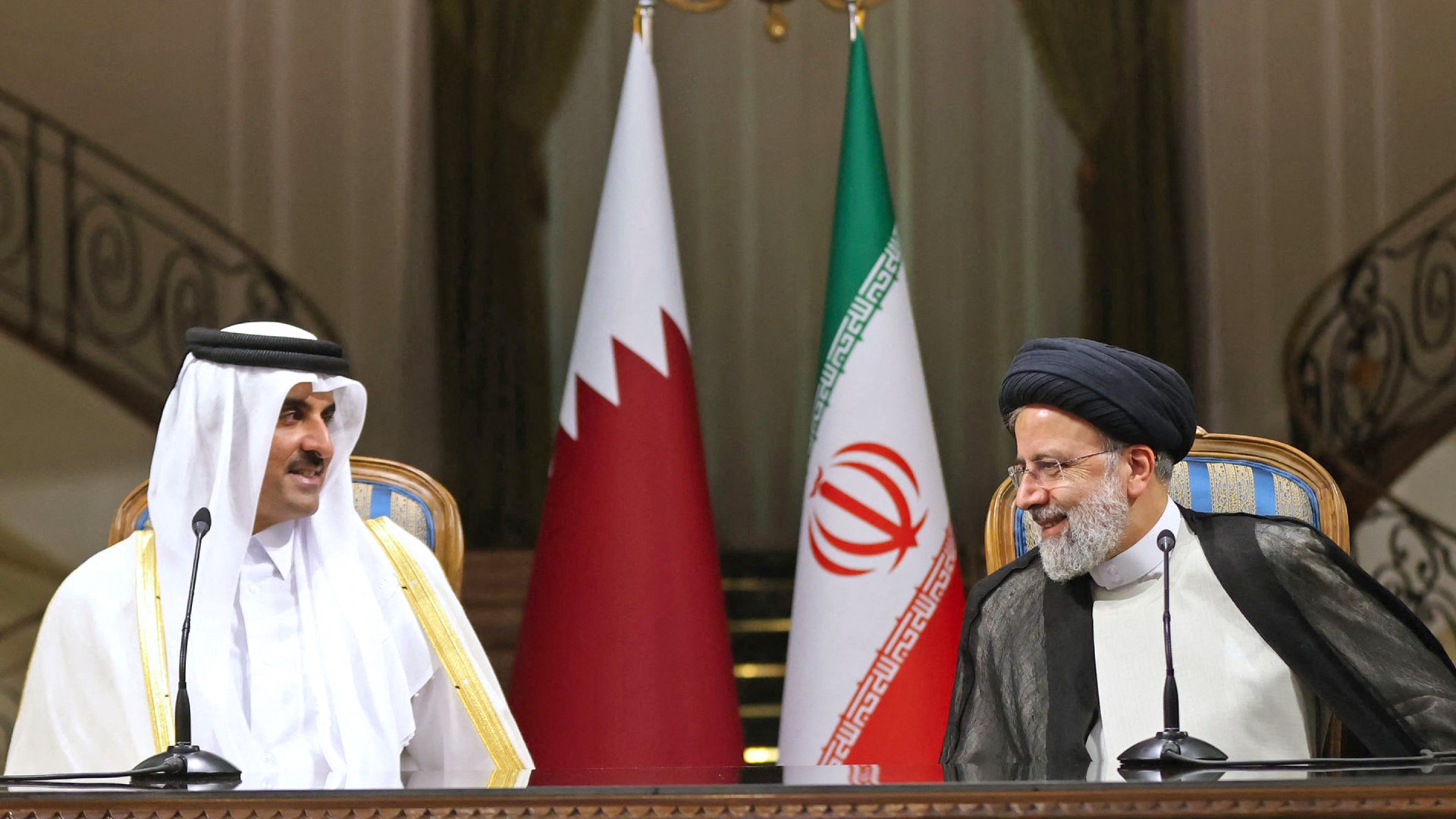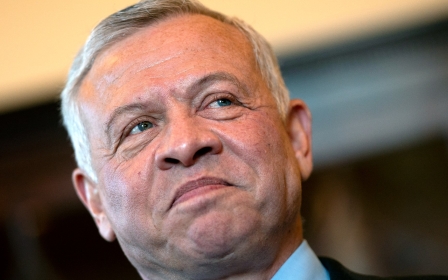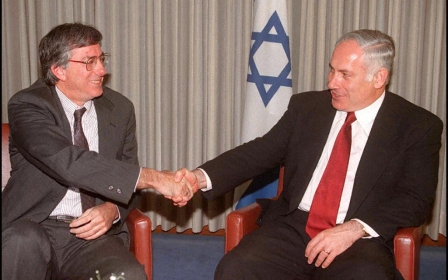New US-Saudi security deal will close door to diplomacy with Iran
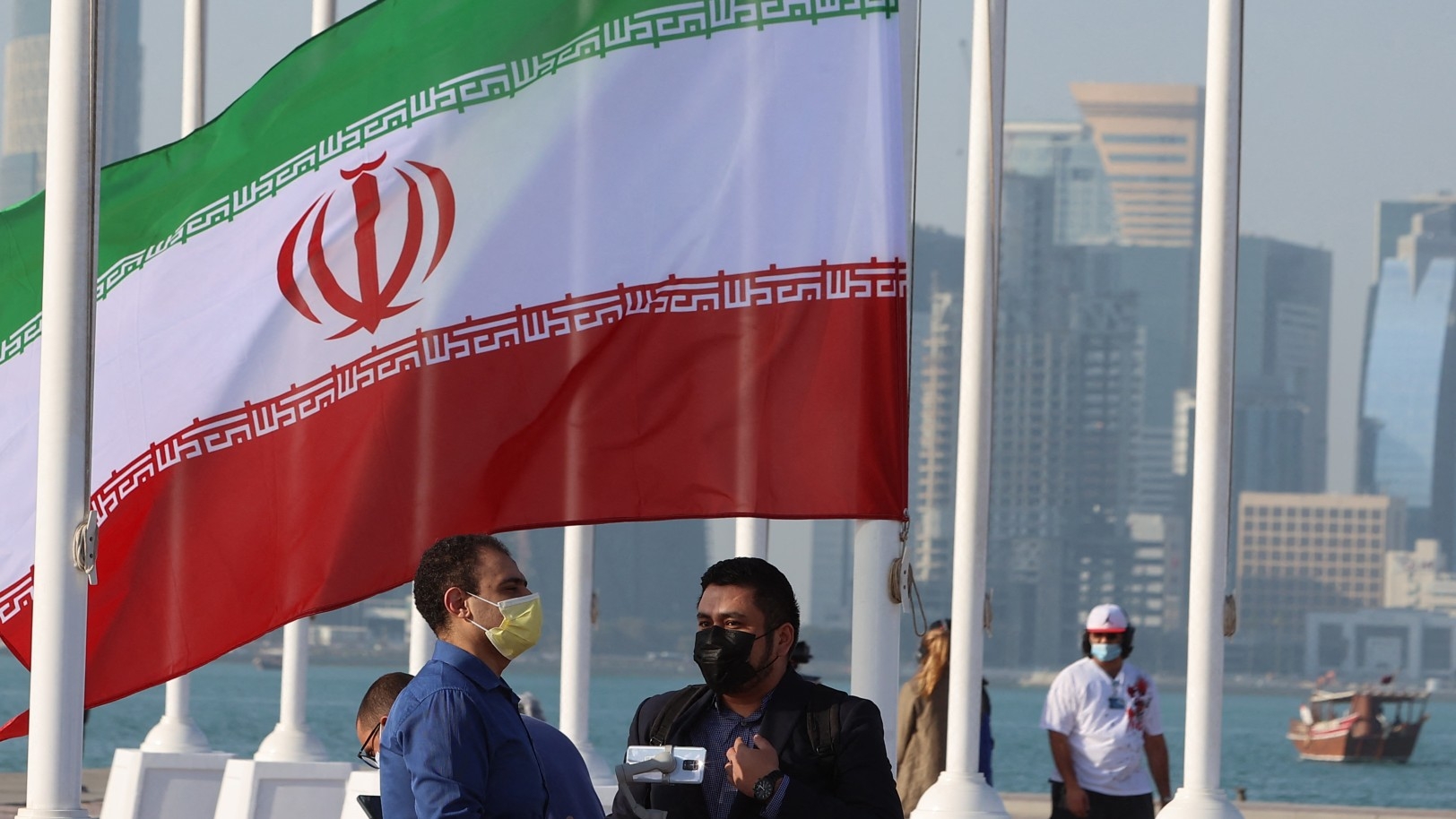
With US President Joe Biden planning to visit Jeddah in the coming weeks, an article in Foreign Affairs penned by Steven Cook and Martin Indyk made the case for a new US-Saudi relationship under a "strategic compact".
There is virtually no mention of the ongoing talks between Iran and Saudi Arabia and Iran and the UAE, and no consideration of Doha and Muscat's deep relations with Tehran
The authors argue that Biden can use a reset in relations with Saudi Crown Prince Mohammed bin Salman (MBS) to bring food and gas prices down in the US using Saudi Arabia's excess capacity to calm the current turmoil in the energy market.
This, in turn, would increase support for the Democrats in the upcoming mid-term elections. But, more importantly, they maintain that "at the core of any rapprochement should be the common need to counter Iran".
This camp of prominent US foreign policy and Middle East affairs thinkers believes in a perpetual conflict between Iran and its Arab neighbours. The arguments presented by them are solely based on containing and countering Iran, with or without the revival of the Joint Comprehensive Plan of Action (JCPOA), better known as the Iran nuclear deal.
There is virtually no mention of the ongoing bilateral talks between Iran and Saudi Arabia, and Iran and the United Arab Emirates (UAE), and no consideration of Doha and Muscat's deep relations with Tehran. They are largely pessimistic towards any regional dialogue and dismiss talks of inclusive regional cooperation.
Subscribers to this approach in the White House are now discussing a proposal for the establishment of a new regional security structure with countering Iran as the shared objective. In Jeddah, Biden will attempt to hold a similar meeting that his predecessor held with Arab and Muslim leaders, with officials from all GCC states, as well as Jordan, Egypt, and Iraq.
The Israeli factor
In the upcoming meeting, it is expected that a new joint aerial and missile defence partnership will be announced between the participating Arab states, the United States, and Israel, dubbed the "Middle East Air Defence Alliance". The idea, backed by a bipartisan bill in Congress, is to "create a regional network of radars, sensors and air defence systems that will be connected in order to give early warning and intercept attacks".
The Israeli factor is key in this context. With the Abraham Accords leading to new political and economic partnerships, particularly between the UAE and Israel, the White House is keen on adding the crown jewel on top of the accords: Saudi Arabia's normalisation of relations with Israel.
Biden doesn't need to convince MBS or the Saudi government to cooperate with Israel. If anything, Israel and Saudi Arabia have been closely aligned on multiple regional files since at least 2015.
MBS said in March that "we do not view Israel as an enemy, but rather as a potential ally in the many interests that we can pursue together, but some issues must be resolved before we can reach that". Already, Riyadh has interacted with Tel Aviv on multiple fronts officially, and quite often through backchannel and secret engagements.
A new trilateral agreement between Saudi Arabia, Israel, and Egypt is expected on Red Sea islands. Israeli planes have also been authorised to use Saudi airspace heading towards certain routes and more openings are expected soon.
The hope is that normalising relations with Saudi Arabia will, according to Cook and Indyk, "further legitimize Israel's military role in the Arab world and facilitate strategic cooperation against Iran". But regional countries themselves are hedging other options and seem to be giving renewed attention to diplomacy with Iran.
The diplomacy option
During the Trump years, Saudi Arabia, as well as the UAE and Bahrain, fully subscribed to Washington's maximum pressure campaign on Iran, even at times forming the main support system for Trump's Middle East policies, alongside Israel as a new partner.
But that close relationship with Washington and Tel Aviv at the time did not lead to what they had hoped for.
Both Saudi Arabia and the UAE were faced with drones, missiles, and rocket attacks hitting offshore shipping containers just off the port of Fujairah in the UAE and Saudi Aramco's oil installations in Khurais and Abqaiq.
These attacks, which were largely attributed to Iran and its proxies, showed US disinterest in getting entangled in a military conflict in the region and prompted Riyadh and Abu Dhabi to directly engage Iran.
Riyadh, itself, started to reopen the door to diplomacy with Iran which it had shut in 2016. Soon after the attacks in late 2019, Saudi Arabia engaged in back-channel talks with Iran, primarily through Iraqi mediation.
The talks have led to an increase in Iranian diplomatic representation at the Organization for Islamic Cooperation based in Saudi Arabia, the participation of Iranian pilgrims in the upcoming Hajj, as well as conciliatory and positive statements by the leaders of both countries in support of reviving diplomatic ties.
Particularly, both countries are keen on finding a solution to the ongoing war in Yemen, albeit with completely different goals.
In the same interview in March, MBS also said: "We have had discussions, and we have heard many statements from Iranian leaders that are very welcome in Saudi Arabia." He added: "I hope we can reach a position that is good for both countries, and a bright future for Saudi Arabia and Iran."
Just this week, Iraq's prime minister travelled to Saudi Arabia and Iran with the hopes of resuming the sixth round of talks between the two countries in Baghdad. This follows the years-long efforts by Iraq to establish itself as a player in regional diplomacy.
Less than a year ago, Iraq successfully held the first Baghdad Conference for Cooperation and Partnership, which brought together regional officials for the first time in years. The initiative, supported by France, was significant in initiating an inclusive multilateral diplomacy and dialogue in the region. There are also talks of Iraq hosting and facilitating dialogue between other Arab countries and Iran, including with Jordan and possibly with Egypt.
Economic partnerships
In parallel to Saudi Arabia, the UAE has been even more steadfast in its pursuit to resume cordial, and economically beneficial, ties with Tehran. The UAE is gradually resuming its role as the leading import partner of Iran, a role it had lost during the "maximum pressure" campaign on Iran.
Aside from the gradual detente with Saudi Arabia and the UAE, Tehran's ties with Oman and Qatar are crucially important when considering the geopolitics of the Gulf
Moreover, officials in the UAE are travelling to Tehran and hosting their Iranian counterparts in Abu Dhabi and Dubai. The economic relationship has rebounded so quickly that the Biden administration felt the need to send a delegation from the Treasury Department to remind UAE officials of the sanctions on Iran and their obligation to adhere to them.
Aside from the gradual detente with Saudi Arabia and the UAE, Tehran's ties with Oman and Qatar are crucially important when considering the geopolitics of the region. Politically, Iran and Oman have had uninterrupted friendly relations for more than five decades.
Iran’s president called Oman a "sincere and reliable friend" during his visit to Muscat in May. There are numerous joint economic projects between the two countries, and there are even talks of reviving the proposal for linking gas pipelines between them.
The same is the case with Iran-Qatar relations, at least since 2017.
With Iran's continued support for Doha during the three years of the blockade, Iran and Qatar have elevated their ties to deeper strategic and economic cooperation. The emir of Qatar has travelled to Iran twice in the span of one year, and hosted the Iranian president in Doha in May.
At the same time, Oman and Qatar have been actively facilitating and mediating talks between Iran and the United States, to both calm regional tensions and bring Tehran and Washington back into the JCPOA.
In 2012-2013, Sultan Qaboos of Oman was key in bringing Iran and the United States to the same negotiating table, and the same policy has continued under Sultan Haitham.
Today, the emir and foreign minister of Qatar have taken up that role and have been in shuttle diplomacy between Tehran and Washington. It started in 2017 to defuse tensions in the Gulf region, and now in a bid to bring the two sides closer to an agreement. Because of the trust that has been built with both Iran and the United States, Doha was chosen as the host city for EU-mediated indirect talks between lead Iranian and American negotiators.
Escalation or de-escalation
Rather than consider these developments, Cook and Indyk argue that Biden should "borrow from the Taiwan Relations Act and commit to treating an attack on Saudi Arabia as a threat to the peace and security of the Gulf," "enter into a strategic framework agreement with Saudi Arabia as it has done with Singapore," "commit to making available the necessary arms to enable Saudi Arabia to maintain sufficient self-defence capabilities," and even "consider extending a nuclear umbrella to Saudi Arabia".
The solution, according to them, is not diplomacy with Iran but with hard-power escalation and confrontations in the Gulf region.
Their proposed compact assumes that regional diplomacy will fail, leading to confrontations that only hard-power solutions can solve. But regional actors are less pessimistic about the prospects for diplomacy - after all, that is why bilateral and multilateral talks are continuing with unprecedented momentum.
This is not to say Saudi Arabia or other GCC states do not want security guarantees from the US; they do, especially considering the current securitised environment around the region. There are even talks of enhanced and expanded security pacts with the United States, and even aspirations for treaty-level agreements. But such efforts are only perpetuating the status quo of tensions and conflicts in the region.
In such a scenario, Iran would be forced to once again use its limited bargaining chips, as it did in 2019 and 2020, to create leverage against its adversaries, and that same cycle of escalation and tensions will once again come back to haunt the region.
The regional diplomacy taking place between Iran, Iraq, and the GCC states is an important factor in the new reshuffled multipolar order in the Persian Gulf and must be factored into Washington's policies towards the region.
The Biden administration needs to set in motion a new Middle East policy that leaves room for regional countries to engage in bilateral and multilateral diplomacy. Labelling regional countries as pariahs or partners leads to a dubious binary that will only result in miscalculations and the eventual failure of US policies in the region.
A new Middle East
If the US wants to decrease, or right-size, its footprint in the region, reviving the JCPOA is key. All GCC states also jointly expressed their support for the JCPOA in two separate meetings with US and EU officials back in November 2021. The GCC states, particularly Qatar, Oman, and the UAE, would worry less in their financial dealings with Iran with the JCPOA restored.
The Biden administration needs to set in motion a new Middle East policy that leaves room for regional countries to engage in bilateral and multilateral diplomacy
In a recent report for the Bourse & Bazaar Foundation, I identified the new horizons for regional diplomacy in the Gulf and argued that there are myriad ways in which regional countries could leverage economic ties and the region's economic potential to forge new interdependencies and economic integration in the region.
This would serve as the means for conflict resolution and sustainable economic development in the region that should be pursued in tandem with ongoing political and security dialogues.
The ever-lasting tendency within the US establishment to view the region in binary terms is no longer realistic, especially considering the many regional dialogues taking place and the renewed attention to diplomacy.
The proposed compact is shutting the door to diplomacy with Iran. It won't be a deterrent to Iranian actions, because such initiatives never deterred Iranian actions in the past and thinking that they will in the future is futile. The compact is, by design, a deterrent to regional diplomacy.
The views expressed in this article belong to the author and do not necessarily reflect the editorial policy of Middle East Eye.
Middle East Eye propose une couverture et une analyse indépendantes et incomparables du Moyen-Orient, de l’Afrique du Nord et d’autres régions du monde. Pour en savoir plus sur la reprise de ce contenu et les frais qui s’appliquent, veuillez remplir ce formulaire [en anglais]. Pour en savoir plus sur MEE, cliquez ici [en anglais].



